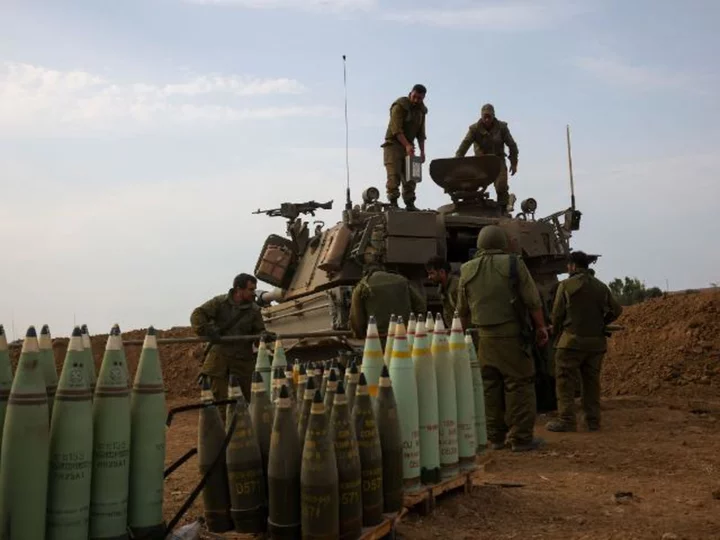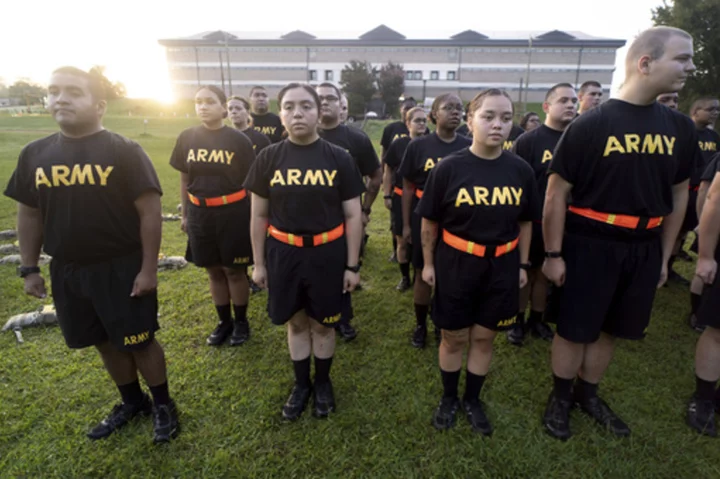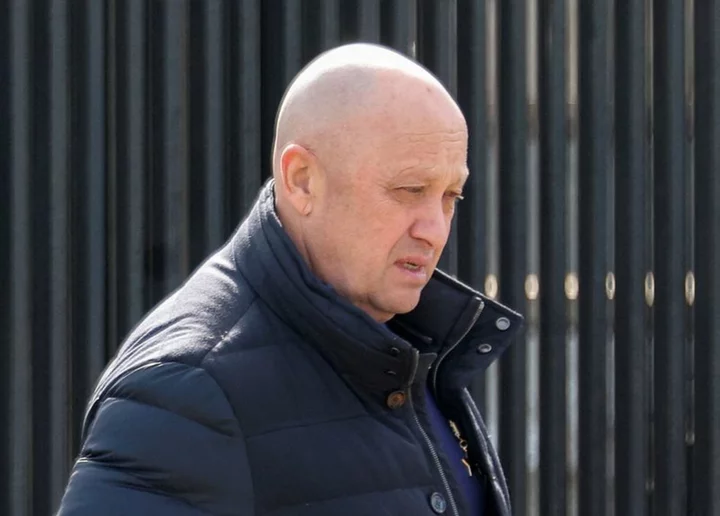Israel is repeatedly pounding Gaza with deadly airstrikes, displacing more than 100,000 people and sending waves of injured Palestinians to overwhelmed hospitals, as military leaders follow through on orders of a "complete siege" of the densely populated coastal strip.
Israel's ambassador to the United Nations told CNN on Monday that country's priority is "to obliterate Hamas terrorist capabilities" after the militant group threatened to kill civilian hostages and broadcast the executions if airstrikes target Gaza without warning.
"Of course, we want to see all of our boys, girls, grandmothers, everyone who was abducted we want to see them back home, but right now, our focus is looking at our national strategy is to obliterate Hamas terrorist capabilities," Gilad Erdan said, as violence continued into a fourth day Tuesday.
Erdan said the number of people believed to have been taken hostage in Gaza, following Hamas' devastating surprise attack on Israeli soil, is estimated to be between 100 and 150. On Sunday, Hamas claimed to be holding more than 100 hostages in Gaza, including high-ranking Israeli army officers.
Erdan added that the presence of hostages in Gaza is "not going to stop us, prevent us from doing what we need to do in order to secure the future of Israel."
Israel's Prime Minister Benjamin Netanyahu issuing dire warnings to Hamas on Monday, saying that Israeli forces would attack with a force "like never before" and that the destruction of Hamas strongholds in Gaza is "just the beginning."
"This enemy wanted war, and this is what they will get," Netanyahu said Monday, adding "difficult days are still ahead of us."
CNN teams on the ground near Israel's border with Gaza heard big explosions and heavy rumbles within Gaza and fighter jets above, appearing to indicate further strikes early Tuesday local time.
At least 900 people were killed and thousands injured in Israel in Hamas' attack, which began early Saturday with the militant group firing thousand of rockets and sending fighters into Israel. In response, Israel on Sunday formally declared war on Hamas.
Israeli jets continued to bombard Gaza with deadly airstrikes Tuesday. So far, the bombings have killed at least 687 people, including dozens of children and women, and left thousands injured, according to the Palestinian Health Ministry.
A major Israeli offensive such as a ground incursion into Gaza is widely anticipated though the full scale of the Israeli response remains unclear.
Israel has saturated its southern border with troops, and the entire length of fence across the border with Gaza is covered with tanks and air coverage, the Israel Defense Forces (IDF) told CNN. Israeli forces have finished evacuating civilians close to the border, and more than 300,000 Israeli reservists have been called up, it said.
Despite the military reinforcement, Hamas militants have attempted to breach the southern border with Israel for suicide missions to kill civilians and soldiers, IDF spokesperson Lt Col. Jonathan Conricus said.
"What happens on the way and how we implement that task will be seen. But at this stage, we continue to strike from the air. And there are plans to, of course, expand that," Conricus said. "The troops, the reserves, and the regular units that are amassing along the southern border are readying for their tasks."
Israel accused of deliberately targeting civilians
Within Gaza itself, Israel's primary retaliation measure has been repeated airstrikes, while a "complete siege" ordered on Monday would halt the supply of electricity, food, water and fuel to the Palestinian enclave.
The territory is one of the most densely populated places on Earth, where some 2 million people live in an area of 140 square miles.
It has been almost completely cut off from the rest of the world for nearly 17 years, when Hamas seized control, prompting Israel and Egypt to imposed a strict siege on the territory, which is ongoing. Israel also maintains an air and naval blockade on Gaza.
The United Nations Relief and Works Agency (UNRWA) said late Monday it has been forced to close all 14 of its food distribution centers in Gaza and "as a result half a million people have stopped receiving vital food aid."
More than half of its population lives in poverty and is food insecure, with nearly 80% of its population relying on humanitarian assistance.
Israeli strikes on Monday targeted the Shati and Jabalia refugee camps in Gaza, the Palestinian Health Ministry said, describing the assault as a "massacre against the entire neighborhood."
Further airstrikes on a residential building killed two local journalists and injured another in the western part of the Gaza Strip, according to a statement by the Hamas-controlled Government Media Office.
Saed Al-Taweel and Mohammed Sabah were covering the evacuation of a threatened building when the Israeli strike hit, said a statement from Salama Marouf, the head of the media office. They were clearly identifiable as press members and were wearing safety gear and distinctive journalist markings, Marouf said.
Video seen by CNN shows Sabah's body on a stretcher, clad in a blue bulletproof vest labeled "Press" and surrounded by other journalists. The IDF told CNN it was looking into the report.
Meanwhile, the ministry accused Israeli forces of "persistent and deliberate targeting of civilian neighborhoods, health facilities, and notably, medical and rescue crews, as well as ambulance vehicles."
The ministry said five medical staff had been killed in targeted attacks inside Gaza.
Access to medical care has been complicated by Israel cutting power to the territory, and the ministry said that all services at the only functioning hospital in Gaza's Beit Hanoun neighborhood were suspended due to continuous Israeli airstrikes. Nine ambulances have been targeted since Saturday, the ministry added.
Most of those arriving at hospitals in Gaza have sustained second- and third-degree burns and amputations, a spokesperson for the Palestinian Health Ministry told Palestinian news outlet Shihab Agency on Monday. Many have also sustained shrapnel injuries, Ashraf al-Qidra said.
Those seeking hospital care are mainly women and children, al-Qidra said, adding that this is a "result of Israelis directly targeting residential houses and buildings."
The UNRWA said its emergency shelters in Gaza are at 90% capacity with more than 137,000 people taking cover from Israeli strikes. It also said that one UN school housing displaced families was "directly hit," without giving further details. It's unknown how many people were in the shelter at the time of the strike.









